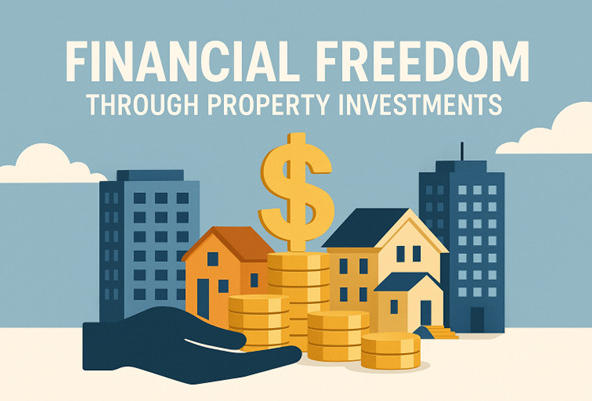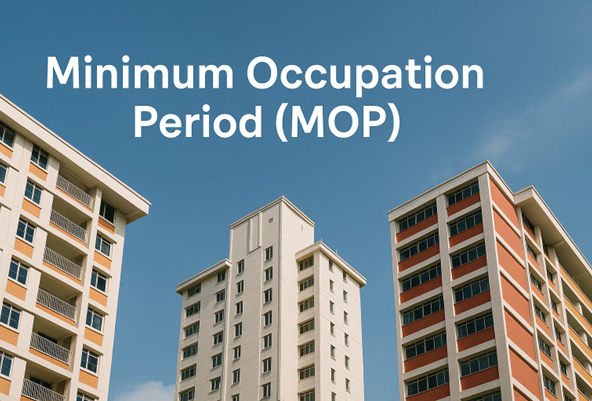
How to Navigate Commercial Real Estate Contracts Like a Pro
Navigating commercial real estate contracts can feel daunting, but understanding their nuances is crucial for safeguarding your business interests. These contracts, often packed with legal jargon and detailed clauses, serve as the foundation for any real estate transaction.
Whether you’re leasing a property for your growing business or investing in a prime commercial space in Singapore, grasping the fine print can prevent costly mistakes and future disputes.
In this article, we’ll break down the essential elements of commercial real estate contracts, covering key clauses such as rent terms, maintenance responsibilities, and exit strategies.
We’ll also highlight legal considerations specific to Singapore, ensuring you’re equipped with the knowledge to negotiate with confidence. From subleasing terms to force majeure clauses, we’ll guide you through the details that matter most in safeguarding your investment.
For businesses operating in Singapore’s vibrant real estate market, where demand for commercial spaces is consistently high, understanding these agreements is not just important—it’s essential.
With prime retail rents averaging $26 per square foot per month in popular areas like Orchard Road, making informed decisions could save your business significant costs while securing a property that aligns with your goals. By the end of this article, you’ll have the tools and insights to navigate these contracts like a pro.
Understanding Commercial Real Estate Contracts

What Is a Commercial Real Estate Contract?
A commercial real estate contract is a legally binding agreement that outlines the terms and conditions of leasing, buying, or selling a property intended for business use.
These contracts go beyond simple agreements, detailing all involved parties’ responsibilities, rights, and obligations. Whether you’re securing an office space, a retail outlet, or an industrial facility, the contract serves as the blueprint for the transaction.
Why Are These Contracts Essential?
The primary purpose of a commercial real estate contract is to ensure transparency and avoid disputes. Specifying terms such as rental payments, maintenance responsibilities, and termination conditions provides clarity to all stakeholders. A well-drafted contract can safeguard your interests and prevent potential legal or financial complications.
Who Are the Parties Involved?
Typical stakeholders in commercial real estate contracts include:
- Landlords: Property owners leasing or selling the space.
- Tenants: Businesses renting the property for operational use.
- Buyers: Entities purchasing commercial real estate.
- Sellers: Owners divesting property assets.
- Agents/Brokers: Facilitators of the transaction, often assisting with negotiations and documentation.
Each party plays a distinct role, making it critical to understand their obligations and rights under the agreement.
Legal Framework in Singapore
Singapore’s commercial real estate transactions are governed by robust legal regulations, including:
- The Conveyancing and Law of Property Act (CLPA): Governs property sales and leases.
- Land Titles Act: Pertains to ownership and registration of properties.
- Contractual Principles: Based on Singapore’s Contract Law, ensuring agreements are enforceable and fair.
Essential Clauses in Commercial Real Estate Contracts
Understanding the key clauses in a commercial real estate contract can make or break your investment. Each clause carries significant implications for your rights, obligations, and costs. Here’s a breakdown of the most critical terms to watch for:
Rent and Lease Terms
Base Rent vs. Service Charges
Rent typically consists of a base amount and additional service charges for maintenance and shared facilities. For example, service charges in Singapore can range between $1 to $2 per square foot in prime commercial spaces.
Lease Duration and Renewal
Lease agreements usually span 3 to 5 years, with options to renew. Ensure the renewal terms are clear and fair to avoid sudden rent hikes.
Rent Escalation Clauses
Some contracts include annual increases tied to inflation or market rates. These can significantly impact long-term budgeting if not negotiated properly.
Maintenance and Repair Obligations

Tenant vs. Landlord Responsibilities
Contracts often split responsibilities. Tenants may handle non-structural repairs (e.g., interior fixes), while landlords manage structural upkeep.
Common Clauses
Look for clauses detailing who handles issues like HVAC maintenance or pest control. Ambiguities here can lead to disputes.
Termination and Exit Clauses
Grounds for Early Termination
Contracts should outline conditions under which tenants or landlords can terminate early, such as a breach of agreement.
Penalties for Premature Termination
Breaking a lease early often incurs penalties like forfeited deposits or additional rent payments.
Sublease and Assignment
Tenant Rights
Tenants may wish to sublet unused space or transfer the lease entirely. Ensure these rights are explicitly permitted in the contract.
Landlord Approvals
Most agreements require landlord approval for subleasing, with specific conditions attached.
Security Deposits and Guarantees
Deposit Amounts
Deposits in Singapore typically equal 2 to 3 months’ rent.
Refund Conditions
Contracts should specify refund criteria, such as deductions for damage or unpaid bills.
Usage Restrictions
Permitted Use
Commercial spaces often have restrictions on the type of business activities allowed. For example, certain zones may prohibit food services.
Alteration Limits
Tenants must often seek approval for renovations, ensuring compliance with safety regulations.
Force Majeure and Unforeseen Circumstances

Definition and Examples
Force majeure clauses cover events like natural disasters or pandemics, temporarily relieving parties of contractual obligations.
Impact on Obligations
For example, during COVID-19, many businesses invoked force majeure to defer rent payments.
Negotiation Tips for Commercial Real Estate Contracts
When negotiating a commercial real estate contract, preparation and attention to detail are key to securing favourable terms. Here are some practical tips to guide you:
Do Your Due Diligence
Research Thoroughly
Understand the property’s condition, rental trends, and market standards. For instance, office rents in Singapore’s Central Business District average around $10–$12 per square foot per month, making it essential to benchmark your agreement.
Engage Professionals
Hiring a real estate lawyer or consultant can save you from potential pitfalls. Professionals ensure the contract aligns with Singapore’s legal framework, preventing costly errors.
Focus on Key Clauses
Prioritise Business Needs
Identify the clauses most critical to your operations, such as lease duration, rent escalation, and permitted use.
Negotiate Flexibility
Push for terms that accommodate your business’s growth or uncertainties, such as shorter lock-in periods or subleasing rights.
Seek Clarity and Avoid Ambiguities
Request Specific Language
Ambiguity in clauses like “reasonable efforts” can lead to disputes. Insist on precise language to avoid misunderstandings.
Eliminate Grey Areas
Terms regarding repairs, maintenance, or renewal should leave no room for interpretation.
Customisation of Agreements
Tailor the Contract
Every business has unique needs. For example, retail outlets may require modifications to align with branding. Ensure these are reflected in the contract.
Avoid Generic Templates
Pre-drafted agreements often lack details specific to your situation. Customising ensures all contingencies are covered.
Common Pitfalls and How to Avoid Them

Even the most experienced professionals can overlook key elements in commercial real estate contracts, leading to unexpected costs and complications. Here are the most common pitfalls and practical ways to avoid them:
Overlooking Renewal Terms
The Risk of Automatic Renewals
Failing to review renewal terms can lead to unwanted extensions at higher rates. In Singapore, renewal clauses often include 3-5% rent increases annually, which can strain budgets if unnoticed.
How to Avoid It
Set reminders for renewal deadlines and negotiate terms that allow flexibility, such as pre-negotiated rates or shorter renewal periods.
Ignoring Hidden Costs
Unexpected Expenses
Hidden costs like service charges, property taxes, and maintenance fees can inflate the overall cost of the lease. For instance, in Singapore, service charges in Grade A office buildings range from $1.20 to $1.50 per square foot per month.
How to Avoid It
Request a breakdown of all associated costs before signing and ensure these are detailed in the contract.
Misunderstanding Liability Clauses
Potential Legal Liabilities
Liability clauses often dictate who is responsible for damages, accidents, or disputes. Misinterpreting these can leave tenants liable for costly repairs or lawsuits.
How to Avoid It
Review liability terms carefully with a legal expert to ensure fair distribution of responsibility.
Not Accounting for Market Trends
Staying Updated
Contracts that don’t reflect current market trends can leave tenants overpaying. For example, recent reports show office rents in suburban areas have stabilised, offering more competitive rates.
How to Avoid It
Research the market thoroughly and ensure the contract terms align with prevailing trends.
Legal Framework and Support in Singapore

Navigating commercial real estate contracts in Singapore requires a strong understanding of the legal framework. With stringent regulations in place, it’s essential to know your rights and responsibilities to ensure a smooth transaction.
Key Legislation to Know
Regulations Governing Real Estate Contracts
Singapore’s legal system provides robust protection for both landlords and tenants. Key legislation includes:
- The Conveyancing and Law of Property Act (CLPA): Governs property transactions, including leases and sales.
- Land Titles Act: Focuses on the registration and ownership of property, ensuring clarity in title transfers.
- Contracts Act: Outlines the principles of contract law, such as validity, enforceability, and remedies for breaches.
Compliance with these laws is non-negotiable, as they provide the foundation for legally binding agreements.
Role of Lawyers and Advisors
Why Legal Expertise Matters
Engaging a real estate lawyer or advisor can save you from costly mistakes. Their expertise ensures that your contract aligns with legal standards and addresses your specific needs.
Services Offered by Real Estate Lawyers
- Contract Review: Lawyers examine terms to identify potential risks or unfair clauses.
- Negotiation Assistance: They help you secure favourable terms during discussions with landlords or sellers.
- Legal Compliance Checks: Ensures the agreement adheres to Singapore’s property laws.
Closing Strong: Secure Your Commercial Real Estate Future
Stepping into the world of commercial real estate contracts may seem daunting, but with the right knowledge and strategies, you can turn complexity into opportunity. Each clause, from rent escalation to termination rights, is a building block for a secure and profitable deal.
Equipped with a clear understanding of Singapore’s legal framework and the support of seasoned professionals, you’re now ready to negotiate with confidence and precision.
Singapore’s dynamic commercial real estate market, with its diverse opportunities and robust legal safeguards, offers endless possibilities for growth. Whether you’re leasing an office space in the bustling Central Business District or securing a retail property in a high-demand area, the key to success lies in preparation.
By paying attention to details, avoiding common pitfalls, and aligning contract terms with market trends, you’re setting the stage for a strong and sustainable future.
So go ahead, take the leap! Your next commercial property deal isn’t just a transaction—it’s a gateway to achieving your business ambitions. With the insights you’ve gained here, the road ahead is bright and full of potential.


